In the first of a seventeenth (and wildly popular) series, we interview some of the most talented up-and-coming Sommeliers in Ontario. A few years back I was flicking through the pages of a locally published periodical and noticed that when it came to Sommeliers it was the same names that seemed to pop up over and over again. I was also becoming gradually cognisant of the fact that we more established wine folks were well and truly “losing our edge” to these young blood Sommeliers. Being well aware of the depth of new talent that was out there I finally decided to get together with a couple of fellow Toronto Sommelier “Old Guard” (Anton Potvin and Peter Boyd) to assemble a line of questioning that would give us an entertaining insight into the minds of these rising stars.
This time around we share a few drinks with Toni Weber, beverage director at the brand spanking new Giulietta restaurant on College Street just a few blocks west of Ossington.
Good Food Revolution: So Toni, what is it that you are doing these days?
Toni Weber: These days I’m the beverage director for Giulietta, which is a new Italian restaurant by Chef Rob Rossi in Dufferin Grove. We’re set to open in the next few weeks so the last few months have been spent building out and purchasing for the mostly Italian wine list and plotting and purchasing for our bar program as well.
GFR: And what kind of experience and training did you have before doing what you do today?
TW: I’ve worked in restaurants for the last 12 years, but I started taking wine seriously about six years ago. Prior to that, I was working as a cocktail bartender and manager. My first true somm gig was at alo, where I was the assistant sommelier on the opening team. I was there for a year and half and then moved to Canoe, where I was in a sommelier/manager role. I had only been there for about eight months when I was offered the opportunity to open Giulietta with Rob and David Minicucci.
As far as formal training, I am for the most part self taught. I started my studies not ever thinking I would ever be allowed to do this for a living-I was just fascinated. So, I bought a lot of books. To supplement and support the my studies, I annoyed anyone I perceived as knowledgeable with my inane questions, I snuck into trade tastings and I bought and drank a heroic amount of wine. I tried to find and hang out with people who were as taken with the topic as I was.
I am certified by the Court of Masters and I’m currently studying to sit the advance exam. I’m attending one of the CMS advanced courses this June in Dallas. I have also taken some classes through Sommelier factory, which I enthusiastically recommend. Such lovely, incredibly knowledgeable people. They’re serious in their study but not necessarily in their approach. They keep it fun and relevant, and they go out their way to source great wines for their classes.
GFR: How would you describe your role with the two restaurants?
TW: My role at L’Unita is simply working the floor and pulling corks. They have a strong team in place and they don’t need my help as far as purchasing or building out that list. It’s also David’s baby. Down the road I may be more involved there. But for now I’m happy to focus my energies on creating the best program possible for Giulietta.
GFR: Opening a new place always comes with its trials and tribulations… any crazy stories or anecdotes that come to mind with the opening of Giulietta?
TW: When we had to partially remove the back wall of the restaurant to fit our pizza oven in. Based on the pizza I’ve had the chance to try so far, it was worth it.
GFR: How are the clientele at L’Unita when it comes to their taste in wines? And how do you feel the new place, Giulietta, will differ? Yorkville vs. College Street crowds?
TW: The restaurants will be quite different, in concept and design and execution. With Giulietta, we had this really beautiful, almost industrial space. We have worked with an incredible designer, Guido Costantino. His vision for the space was warmth and modernity, while still preserving some of those industrial details.
The menu will also be quite different. The L’Unita menu is built with the traditional diner in mind. App, followed by main, followed by dessert.
At Giulietta, our guests can dine traditionally if they choose to, but will get the most out of the experience if they enjoy it family style.
As far as the clientele, I’m anticipating a very different clientele and the wine program certainly reflects that. L’Unita is heavy on the classics, but the Giulietta list will be more adventurous and a bit more off the beaten track. A few classics sprinkled throughout, but I was looking for wines with a distinctive character and energy.
Anyone who has worked in Yorkville knows what that clientele is like-they can be very lovely and certainly very loyal, but they know what they like and they basically insist on it. There doesn’t tend to be many opportunities to introduce your guests to new things in Yorkville. I’m generalizing a little bit, but not really.
Now, there are a few restaurants that have challenged that and found great success. Mostly I’m thinking of Brothers. Such a great product from top to bottom, but you get the sense it’s very much what they want it to be and there’s no BS or compromise. And when you’re there, you see all the classic Yorkville architypes sitting at the bar, enjoying themselves with little to no kvetching. I doubt Chris would stand for it if they did.
GFR: You have worked in a number of different restaurants all over Toronto, many of them at the higher end… Is the general level of service here in Toronto really as bad as so many people make out?
TW: I suspect I’m a difficult person to dine out with because the service in most Toronto restaurants is bad enough that it gives me anxiety. I have a hard time enjoying myself sometimes. That obviously says way more about me than it does about the people serving me.
I think historically, bad service has always been a reflection of poor management, but I don’t believe that’s always the case these days. We’ve experienced such a labour drought in this city in the last few years, in both FOH and BOH. There are more restaurants in Toronto than there are willing and interested people to work in them, and so many restaurants are forced to hire warm bodies. Maybe some people who are in it for the quick cash, who may have no business in customer service. People who are not necessarily detail oriented or perhaps lack empathy.
We will most likely see a bit of a cull in the number of restaurants in Toronto, over the next few years. The minimum wage increase will force some of the less passionate and less organized operators out of the market, and with fewer positions to fill our industry can hopefully stabilize. Until there is a bit of a reshuffle, staffing your restaurant with solid, serious professionals is one of the greatest challenges facing restaurant operators and management. This business is all about people. If you don’t understand that, you are doomed.
GFR: You have some background with the OB group through your time at Canoe. What did you learn from your time there, and why do you think so many of the best people in the industry (Anton Potvin, Anne Martin, Will Predhomme et al.) have history with OB?
TW: I believe it’s the best training ground in the city, most likely the country. I only wish I had spent more time there; I definitely feel like I just barely scratched surface of what I could have learned from that organization. When I first started in this business, working for O&B was the ultimate goal. It just always seemed like they truly believed that restaurant work was a real vocation, a career. It wasn’t a place to while away the hours until your band finally took off. You could cook or serve or manage a floor for a living, and be a professional. They expect a lot of you, but they provide you with the tools. There are some really impressive people working there, both at head office and as boots on the ground. Many have been there for decades. I can’t think of any other restaurant group that could dream of that kind of retention. It says so much about how they run their business’ and treat their people.
That being said, I get the impression I may have missed the golden years of that company. When they were big enough and successful enough to do everything right, but not so big that standardization started to affect the individual character of their venues. That’s not necessarily a criticism; if you have the opportunity to continue to grow, why wouldn’t you? And with growth comes standardization. One follows the other, otherwise it doesn’t work.
For me personally, I prefer to work in smaller restaurants. I need to know the people I’m working for, to be able to look them in the eye and shake their hand. I need to know that I like them.
GFR: What’s your whole take on the whole tip argument? I’ve never been part of the tip pool as I have always been in management, or in a private club with no tips. In my mind the tip system in north america is completely broken… and then we have the minimum wage aspect! A veritable knot of vipers. A huge subject, I know, but I would be interested to hear your thoughts.
TW: I believe we are moving slowly towards a service included system, but I think there will be a few stops and starts before we are there. The CRA is taking more and more of an interest in gratuities. I think sooner rather than later, tips will need to be taxed and therefore, pass through an employers’ hands before they reach their intended destination. Once that happens, you can still track your tips if you’re truly diligent, but unfortunately the water will forever be muddied. If we knew every operator to be honest and scrupulous, that would be one thing. But I think we all know that unfortunately, there are a few bad apples. Service included may end up looking like a more attractive option.
I always believed that when service included did inevitably happen, that someone like O&B would have to lead the charge. Someone with tight systems and the ability to weather a little bit of a storm. Someone with a longstanding relationship with the restaurant-going public. But then, after what happened with USHG in NYC, I’m not so sure. It seems to be difficult for people to adjust their value perspective. The sticker shock seems to have deterred many guests from returning, even if the end of the day price difference to the guests is negligible.
As well, I would also argue that tips and the current pay structure in our industry is a direct contributor to many of our most pressing issues. The issue of pay disparity between FOH and BOH is a very troubling and touchy subject, but I don’t think we can continue to ignore it for much longer. When a server relies on the generosity of his/her guests in order to make a living, it can quickly and easily manifest into a weird power dynamic. That it turn has the potential to evolve into several different scenarios, and many of them are gross.
I know that most servers would prefer not to disrupt the status quo, and I completely understand and empathize with that. I also know that if the average nightly take away changes dramatically, we will most likely some of our best people. I suppose we will have to cross that bridge when we inevitably come to it.
GFR: Now, how do I word this? Have you drunk the “Natural Wine Kool Aid”? I’m just kidding, kind of… I’m sick fed up of “natural wine” zealots with nothing but derision for those who feel otherwise. Saying that, I do feel that there are some astounding “Natural” wines out there, so don’t get me wrong. How do you feel about the scene? … perhaps I just have a very low tolerance for volatile acidity, I don’t know… but there is some right old crap out there.
TW: I try not to be too dogmatic about anything in my life, and that includes wine. Natural wines can be fun and exciting, and sometimes actually breathtaking. Sometimes they are delightful despite their faults. And sometimes, they are undrinkable.
I will say though, that I’m perplexed by the average price of a bottle of natural wine. $40 seems like a lot to pay for the wine equivalent of Russian roulette, and that tends to be the median price point for natural wines in our market: $30-$40 bucks. I struggle to find value in these products sometimes. If you don’t have the overhead costs associated with conventionally made wines (barrels, RO machines, pesticides, sulfur, etc.) then how do you justify premium pricing? If it’s just you in the woods with the concrete fermenter you reclaimed from a 400 year old abandoned winery, and a bunch of hip young people pilgrimage to your winery every harvest to pick grapes and sleep in tents on your property…
I’m kind of joking and I understand that making good wine without a lot of chemicals can be a very risky and expensive endeavour. I understand that operating with integrity can quickly add to your overhead. All I ask is that the value is there, that the wines are delicious enough that they measure up to conventional wines in the same price point. In which case I am so delighted to support them and to sell them.
GFR: What makes for a good agent/supplier/merchant in your mind?
TW: Someone who replies quickly to emails, bring fresh samples to tastings. I try to be respectful of everyone’s time, and I appreciate it when that is reciprocal. If we have discussed certain wines in the portfolio, and those wines are meant to be the focus of the tasting, maybe don’t forget them. It’s the little things.
I love working with someone who is passionate about what they represent. It makes it way more fun when they share your enthusiasm.
GFR: And what makes for a bad agent/supplier/merchant?
TW: Luckily I have had very few of these. I am annoyed by lack of communication, a lack of product knowledge. I’m not inclined to chase someone in order to give them my business.
GFR: How do you feel about Canadian wines?
TW: Love them. I’m so excited about where we are headed here in Niagara I wish I had more time (and a driver’s licence) because I would love to spend more time there. While I was at Canoe, I was fortunate to get a crash course in B.C. wines. It’s so unfortunate that it’s so challenging to access those wines here. They provide such a lovely contrast to the wines of Ontario, and they help paint a more complete picture of the diversity that we are capable of in Canada.
GFR: Ha… I hear you on the driver’s license, as I just got mine a couple of years back.
What do you think that we do well here in Ontario?
TW: Chardonnay. It has the potential to be so, so good here. Riesling. Pinot. Gamay and Cab Franc. I’ve had some stupid good Syrah as well. 5 rows makes a killer example, if you can get your hands on it. There are a few others but they’re very vintage dependent. Too often you get those raw, crunchy peppercorn notes that are the hallmark of an under ripe Syrah.
GFR: Underripe? I thought that rotundone spice was from cooler vintages?
And what do you feel we should really give up on?
TW: We are a cool climate, at least until global warming wraps us in her terrifying embrace. Many vigneron and monks and the like have spent millenia figuring out what works and what exactly falls within the cool climate spectrum. And Cab Sauv does not.
That being said, I do appreciate that wineries like Stratus are able to experiment a little bit and test the waters. We are a very young region in the grand scheme of things, and it seems impossible that we have already reached the outer limits.
GFR: How open are your customers to Canadian wines? And how have you seen the industry evolve?
TW: It’s interesting. At Canoe, it represented a huge part of our wine sales. We were able to purchase and represent a great spectrum of Canadian wines and really go in depth with our clientele. Obviously, a lot of these people were tourists, and many have no idea that we make wine in Canada. Some were dismissive, but most were excited and eager to try something new. It is a real pleasure to explore Canadian wines with someone who didn’t write them off after they had a few bad bottles in the 1990’s.
This however, has not been the case at every single other restaurant I’ve worked at. It’s typically always been more of an arm twist, and you have to stand behind the wines and recommend them emphatically in order for people to take a chance on them, in my experience. It’s also a matter of knowing your audience. The guy that loves Silver Oak? He may not be impressed by local reds. But if someone is looking for cheap burgundy (lol) I love to recommend Thomas Bachelder’s Lowrey Vineyard. That has yet to backfire on me.
GFR: Just as there is from everywhere in the world, there is quite a lot of dreadful wine coming from Canada (BC, Ontario et al.) also. How do you feel about the issue of people simply promoting something because of it being local, and not because of its quality?
TW: I think you shouldn’t put anything on a list simply to say you have it. It’s not all that fun to work the floor selling wines you wouldn’t drink yourself. Its important to do your research, to keep an open mind. To taste and to engage. I don’t feel any pressure to list local wines because as I said above, you really have to sell them. I list the local wines I love because I love them.
GFR: How aware of wine were you whilst growing up? Were you around wine from an early age?
TW: Not very aware. My grandfather has made wine in his basement in Lively, ON for as long as I’ve been alive. I’m half Italian and wine was a part of every meal, but it was pretty simple stuff from what I remember. I was not raised by oenophiles.
GFR: Can you remember your first taste of wine?
TW: Not really.
GFR: When do you feel children should be introduced to the wonderful world of wine?
TW: I’m not a parent, so I wouldn’t be so bold as to suggest when that milestone should take place. I don’t necessarily remember when my parents offered me my first sip of wine, but I distinctly remember being included in the dinner parties they would host. My sister and I were always allowed to ‘socialize’ and participate in adult conversation, or at least attempt to. I loved that. Maybe that should be the focus, more so than when we chose to introduce our children to wine. At what point should we allow our children to engage in a little reverie?
Watching my mother be the generous, gregarious host that she was-I think that was quite a formative experience for me. It became an ambition of mine, to be a great host and know how to throw a good party.
GFR: When did you first decide that you would like a career in wine?… and was it with a view to being a Sommelier yourself?
TW: I didn’t necessarily set out with this specific goal in mind, but I’m delighted that it happened the way it did. When I first started studying wine, I couldn’t imagine ever having the chance to do this for a living. I just wanted to work in better restaurants. And then, an obsession was born. I’m very grateful for the opportunity to do what I love for a living.
GFR: So who or what gave you your first insight into the world of wine?
TW: I started seriously studying wine when I was bartending at Terroni, in an effort to wrap my mind around their wine list. I don’t know if there was a specific person there that inspired me, or if I was simply determined to concur that program. It got me started and it pushed me past the basics of wine and into a deeper study. I didn’t meet the people who would truly inspire until a little later down the road.
GFR: The Sommelier world is notoriously full of pretentious arseholes, and after seeing that film Somm a few years back I still worry about the emergence of a new Wine Bro culture… also, I recently picked up on a LOT of that from the mixology crowd, full-on Jordan Peterson fans and all that stuff. I’d love to hear your thoughts?
TW: I kind of adore our little community. I’ve made great friends and feel that for the most part, everyone is sane. I don’t know if it’s just the group that I’ve kind of come up with, but there aren’t that many people that I’m actively avoiding right now. As far as the cocktail bartending scene, it’s been a few years since I worked that circuit so I can’t really comment.
GFR: Speaking of which, we are having some really important conversations right now about the prevalence of sexual harassment in the workplace, and what can be done to eradicate it from the culture. As a woman in the industry I’d be interested to hear your take on the topic… big question I know, but I feel it’s a topic that deserves discussion.
TW: I’ve had this conversation a lot lately, naturally. It’s difficult to sum up my thoughts into something that is easily digestible. I will say that it’s an issue. Of course it is. There are so many factors that conspire to make our industry such a breeding ground for shitty behaviour. I’ll focus on what I believe to be one of the biggest issues and happily, one of the simplest solutions. Something that does not require a massive, global perspective shift. And it all starts at the top.
In my eyes, it all comes down to culture. The development and the maintenance of a healthy restaurant is in the hands of ownership and of management. If it’s their priority to seek and destroy toxic or dangerous behaviour, it will not have the opportunity to fester. It will know it is not welcome and it will not feel comfortable there. If the management enables or ignores toxic behaviour, it will no doubt fester and thrive.
Unfortunately, many people are promoted and become managers in this business without ever having to glance at an HR manual. They are given a power over people’s lives that extends far beyond writing the schedule and making sure we don’t run out of take out containers. I don’t know if the weight of that responsibility is appropriately felt by everyone who finds themselves in that position.
I’m not implying that every manager who fails their team in this respect is acting out of some sinister, evil place. Some people are simply ignorant. Some people are so afraid of confrontation that it compromises their ability to be effective managers. Some people are raised in abusive situations, and so their gauge for bad behaviour may be broken. And sometimes, people simply make mistakes.
It is absolutely, without question, the responsibility of management to set standards and to lead by example. Sometimes, you have to have difficult conversations. You can’t always anticipate a guest who’s about to go too far, but you can certainly handle it a right way and wrong way once an incident has occurred. The way that you handle those situations sets as much of a tone and standard for your staff as a sexual harassment pamphlet or an impassioned pre shift.
GFR: Does your job allow you to travel much? Where have you been lately?
TW: Lately? Nowhere. My schedule hasn’t allowed for more than 4-5 days off at a time. I have taken short trips to Mexico a few times in the last 6 months, in desperate search of Vitamin D. I usually go to Tulum. It’s reasonably close. It’s not a party, all inclusive type situation for the most part. It’s chill, the food is great the beaches are beautiful.
GFR: Which wine regions have you had the opportunity to visit?
TW: Not as many as I’d like! I’ve been to Ampuis and Cote Rotie and I’ve visited some vineyards in Vienna. Obviously PEC and Niagara. It’s a priority. I feel like I’m missing a really important piece of my education.
GFR: Have you ever made your own wine?
TW: Never. I would love to spend a summer helping out at a winery. Hoping to make that happen some day soon.
GFR: And where would you like to make wine (in a pipe dream)?
TW: The south of France seems like it wouldn’t suck. All of my favourite regions are very steep and seem like very hard work. I’m not sure I have the constitution for it.
GFR: So do you prefer to manage people or bottles and why?
TW: I’m a better manager of bottles, but I’m very determined to be a fair and decent manger of people. It’s a challenge. I’m still learning, but I try empathize with my staff and to let them know how much I appreciate them. I try to be aware of how my mood and how I choose to communicate sets the tone for their day.
GFR: What have been your career highs and lows?
TW: Career high has been the last 6 months, working on opening Giulietta. Being a part of the opening team at alo was very special. I learned so much and that team is as close to perfect as you will find. Lows… I think every moment where I was truly challenged or unhappy, ended up manifesting into a positive. Either it was a learning experience or it pushed me into the next thing.
GFR: Who is, in your mind, a real role model for Sommeliers?
TW: I just wrapped up a few months of working at Barbarians one day a week as a ringer somm, and I was really impressed by Christina Sharpe. She doesn’t call all that much attention to herself, she’s just minding her own business, quietly running the most serious wine program in the country. That list has some serious depth and it requires a great deal of knowledge to run that cellar. Also, she’s funny and she’s tough and doesn’t take any shit, but she’s very sweet.
I’m a fan of Scott Zebarth. Such a lovely person, so supportive of so many people. If there was Mr. Congeniality of wine in Toronto, he’d run away with it.
GFR: And for Wine Agents/Importers?
TW: I don’t know about role model, but Ben Hodson does good work. Just don’t ask him to taste.
Mark and Zinta at Living Vine are two of my absolute favorites to work with, and it helps that their portfolio is very covetable. Bernard from Le Sommelier has great taste and knows his portfolio inside and out.
Big fan of Nicole Campbell. And Sarah Walker from Cru, because she is simply delightful.
GFR: Do you have nightmares about working with wines? I do… regularly… and it usually involves being unable to find bottles in a cellar… and the clock is ticking away… I have them all the time, and I haven’t been in the role for over eight and half years!!!
TW: I have work dreams all the time, and the theme seems to always be time. Either I’m late, or I’m back behind a bar and chits keep coming and I can’t get ahead. Not my favorite.
GFR: Sommeliers famously have their Sundays off… What’s your idea of a perfect Sunday?
TW: My partner and I have perfected brunch at home, so that’s usually the move. Eat that, maybe nap, read a bit, go to Kensington, buy stuff for dinner. Cook, drink wine, watch movies. Read more. Go to bed at 11.
GFR: Where are your favourite places to dine and drink in Toronto… perhaps tell us a hidden treasure of our city?
TW: I love Brothers. Grey Gardens. I love Barbarians. Hidden Gems… my dad takes me to this Greek place on Kingston road called Navayo. It’s owned by this guy and his 85 year old mother, and she cooks everything. It’s small enough that she can handle it herself. She’s amazing. It’s a hole in the wall but it’s the best Greek food I’ve ever had in Toronto, which for some reason remains elusive. Sometimes they unintentionally have great cheap wine on the list as well. They just buy whatever is Greek at their local LCBO and occasionally they pick some gems. Otherwise it’s definitely a BYOW situation. Or beer.
GFR: Do you cook yourself? What’s your favourite dish to cook these days?
TW: I love to cook. One of my biggest beefs with the hours that we work is that we’re deprived the simple pleasure of being able to cook for the people we love on a daily basis.
I have been very spoiled for the last few months, working mostly bankers hours. I’ve been working on polenta a lot, trying to figure out my ideal ratio, cooking time, stock vs. milk vs. water. There’s a lot to consider. Lots of braised things, so I can put stuff on top the mountains of polenta. I did some veal shanks, some turkey thighs. My sister bought me the Marcella Hazan cookbook for Christmas and I’m obsessed with it. It’s next to my bed. I’ve made the milk braised pork a couple times.
GFR: And have you had any cooking disasters recently?
TW: I attempted Thomas Keller’s savoury bread pudding for Christmas last year. It will haunt me for the rest of my days. So, so bad. I knew when I read the recipe that it sounded off, but I wasn’t going to question Thomas Fucking Keller. Follow your instincts folks! And don’t experiment on your unsuspecting relatives at Christmas.
GFR: Do you feel that there is a good Sommelier community in Toronto?
TW: It’s the best. I only wish I had the time to engage a little more and attend more things.
GFR: Do you hang about with other Sommeliers?
TW: I do. There’s a few that I’m quite fond. When you spend so much time thinking about something that means so little to 90% of the population, it’s hard to not feel an immediate kinship with your fellow wine geeks.
GFR: How do you feel about Toronto as a wine and cocktail city? Where do you go if you need to get your wine or cocktail on?
TW: Cocktail: I love cocktail bar. Such a cute, perfect little space. Drinks are very good and not annoying or over the top. Pretty Ugly. They’re basically infallible, from a cocktail perspective. Like the vibe there. Love the rug store!
Wine: I love sitting at the bar at Barbarians, Mad Crush, Paris Paris.
GFR: What would you be doing if you were not doing what you are doing today?
TW: Probably journalism, in some form. My parents were in the business, as are my step parents and the rest of the village that raised me. That would have been a natural move for me. My mother seriously discouraged me because before she retired, she worked for the CBC. 5 years ago, that was a very dark place to work. I hear it’s gotten a lot better under Trudeau. I think she was afraid that I would be working on contract until I was 50. Little did she know I was going slip seamlessly into the only industry with less stability than government funded network journalism!
GFR: What are your thoughts on music in restaurants? And who does it well?
TW: I have so many thoughts. I’d like to 86 all 90’s hip hop from restaurants, particularly if you’re playing it from a Spotify playlist called ‘ 90’s hip hop’. It’s lame, and lazy. it’s been done, and we all need to move on. Same goes for basic, Motown greatest hits playlist. Don’t be so lazy.
Music is so important, and it can add so much to an experience. But more so than what is being played, is how it is being played. Proper speakers that have been placed and installed by someone who gave it more than a moments’ thought. Taking into account that your guests would probably rather not yell at each other to be heard. Considering the build up of the night. Making a playlist is a fine art, and it can be very time consuming. We are working with The Playlist Company right now, for that reason. We recognize how important it is and that we may not have the time to dedicate as much attention to it as it deserves, so we left it in their capable hands. I’m excited to see what they come up with.
GFR: Do you have a favourite food/wine related scene in a film/movie or show?
TW: The opening scene of man, woman, eat, drink. The patriarch of the family preparing this elaborate, traditional Chinese lunch. It’s a mise en place wet dream. It’s also really lovely within the context of the film because this is how he shows his daughters how much he loves them, by cooking for them. I love that. And Big Night, from beginning to end. I love that movie.
GFR: I’ve never really “got” Big Night… I guess I’ll have to give it another go.
Do you have many non-industry friends… how do they feel about what you do for a living?
TW: They don’t get it. They try! But they don’t really understand what I do, or why I chose this. They’re supportive and understanding of my schedule. It’s a lot of lunches before service as opposed to drinks on a Saturday. Over time I have managed to train them to understand why Saturday’s off are not really a thing for me.
GFR: What are your thoughts on blind tasting wine?
TW: I think it’s an essential skill, and I wish I did it more often. I think I underestimated how helpful it could be when I was getting started. It’s easy to dismiss it as a parlour trick, and certainly there are some elements of it that are just that. But particularly when you’re just starting to study, it creates some really helpful parameters. It forces you to focus.
GFR: Are you a better blind taster with or without a bad hangover? I’m definitely the former…
TW: Without. I don’t do anything particularly well when I’m hungover.
GFR: What’s your current favourite wine region?
TW: Northern Rhone is my forever obsession.
GFR: In your mind, as an Sommelier, what is “hot” in the world of wine right now? And why?
TW: Everyone seems to have an Etna in their portfolio now, compared to a few years ago when there was only a handful. Sicily in general is getting a lot of attention. Greece. Czech Republic. Beaujolais. Canary Islands. Spain in general. Chinon.
I think it everyone is looking for character and drinkability at a friendlier price point. We were priced out of the top examples from benchmark regions long ago.
GFR: And what’s not so hot? What has fallen out of favour? I why do you feel that is?
TW: I’m very disinterested in Bordeaux. It’s boring and it’s expensive. There are some fine, fairly priced examples, but they tend to be bland and industrially made.
GFR: When it comes to wine is there anything that you feel is overrated?
TW: Please see my rant re: natural wines are overpriced.
GFR: What is your favourite wine pairing right now, something nice and seasonal?
TW: I’ve been serving and eating a lot of Italian food lately, so my mind and palette is firmly planted there. Like I said, lots of braised stuff on polenta. We had some braised veal shanks in red wine and paired it with a bottle Zinta passed along to me from Nittardi. Mostly Sangiovese, some Cab and Syrah. It was lovely.
GFR: Okay… three pairings with me on the spot?… this time with… Ontario Election candidates
What would you suggest to pair with them wine or beverage-wise… and why?
Kathleen Wynne
TW: An oxidized bottle of Blaufrankish.
A past prime bottle of ok but not particularly promising wine.
GFR: Doug Ford
TW: A bottle of corked Pinotage that has been sitting in the back of a hot car all day.
Please keep it away from me.
GFR: Andrea Horvath
TW: Inexpensive Gavi.
Seems fresh in comparison. Boring and unable to hold the attention of the general public. Lacking character and conviction. It will do if there’s nothing else to drink.
GFR: Do you often drink beers, ciders or spirits? What do you currently enjoy?
TW: I love certain classics. Negronis are a go to. It’s like pizza-even a poorly made Negroni is still pretty good.
I love mescal. So fascinating. It seems like the only spirit that has so much innate and natural character, that it can survive a process as violent as distillation with that personality still very much intact. Also, it’s just fucking delicious. I wouldn’t say I’m an expert in mescal but I love discussing it with people who know more than me.
I also love amaro and I’m delighted to see a little more interest in the category from both importers and guests. We need not be limited to the 4 amari that the LCBO has decided to stock.
As far as beers, I don’t really drink IPA’s and the like. I find them challenging and not refreshing and the opposite of what I’m looking for when I reach for a beer. I drink mostly Bud, to be honest with you. I know it’s bad, but I don’t really care. It’s beer.
I will say that we are lucky to have so many craft breweries in the city, and there are a few that truly push the envelope. Mostly I’m thinking of Burdock. They have kind of created their own category with these beer/wine hybrids they are producing, and some of them turn out astonishingly well. I feel like they approach making their beers with the heart of a winemaker, and you can sense that in the balance and the intrigue of what they put out. Beautiful labels. Matt and Jason are super knowledgeable but in the best, most approachable way.
GFR: What is your least favourite part of your job as a Sommelier?
TW: The hours, for the most part. I long to go to bed before midnight. I never thought I would feel that way. I have been a night owl my entire life. It’s part of why I wanted to work in restaurants when I was 18- so I didn’t have to get up early.
GFR: What is your weapon of choice when it comes to a corkscrew?
TW: I’m left handed, so finding my soulmate in that respect has been a challenge. I’ve been disappointed when I’ve spent a little more money on some of the higher end options because they seem to emphasize my disability (which is how my partner refers to my left-handedness). I find the standard Pullman two steps to work pretty well. If they would just make one with a non serrated knife, all my corkscrew related prayers would be answered.
GFR: Due to us being around alcohol, many people in our industry often have quite the increased tolerance for wine/booze, or they develop issues. What is your limit and how do you keep yourself in check?
TW: The older I get, the lower my limit gets, it seems. I can still split a bottle of wine with someone and not feel like total garbage the next day. I could even maybe push it to two, if there are lots of carbs involved. But once we start mixing in aperitifs and amaro and after dinner cocktails, the next day starts to look like a real write off. Which I must say, I’m really starting to hate and increasingly, do not have time for. I try to keep myself in check by reminding myself how angry I will be with myself if I have to operate in a pained, nauseated haze the next day. That works, most of the time. What tends to sway me to the dark side is that I like supporting my friends in this industry. I think the growth we’ve seen in the last few years has been exciting. There’s so many great places now. I like to show face and put a little money back into our economy, so at least my motivations are somewhat noble.
GFR: There’s a lot of open discourse right now around the topic of both drug and alcohol abuse within the restaurant world. Would you care to share a few of your thoughts about that side of the business? To be quite frank with you, the thing I miss the LEAST about working in that environment is the late nights of drinking and recreational pharmaceuticals. I don’t think my body could take it any longer anyway!
TW: It’s crazy to me how commonplace certain drugs have become. It seems like everyone, from all walks of life, are occasionally dabbling in the dark arts these days. It’s so casual now, it’s a bit bizarre to me. I believe that for the most part, what other people do to their bodies is none of my business. As long as I don’t have to deal with you the next day when you’re strung out and grumpy, have at it.
The alcohol use is actually more troubling to me. Relentlessly consuming booze has been normalized within the context of our industry. Everyone drinks, and everyone drinks too much. It seems completely sensible to have 2-3 drinks after a shift. It’s not necessarily harmful but if you do that every day and then spend your days off out and about and visiting your friends and checking out new restaurants, all of a sudden you’re up to a casual 30-40 drinks a week. And that will catch up to us all, eventually. I try to take at least 3 days off a week where I don’t have a drop. It isn’t that much a hardship but because of what I do for a living, it takes more discipline than it should.
GFR: Speaking of which, have you ever been “cut off”? If so, where and when was the most recent time? I think it happened to me back in Scotland once… hazy memories…
TW: I don’t think I’ve ever been cut off, although maybe I was in the hands of some truly skilled professional and I just didn’t realize that I had been cut off. The mark of a true jedi behind a bar.
I do remember one time though, when I was 19. I was sober, and I was attempting to walk in heels. Apparently I wasn’t doing a very convincing job of it, because the bartender refused to serve me. She thought I was so hammered I couldn’t walk. But it was the shoes! I was too embarrassed to argue with her, and slinked awkwardly off into the night. Sometimes I have flashbacks of that moment and my whole body shudders in embarrassment, so thank you for getting me to relive it once again. I am only marginally better at walking in heels now. Thankfully, I’m tall.
GFR: Speaking of which, do you have a good hangover cure? None of the cures given to me by previous interviewees have really done the job for me…
TW: Advil liquid gels. The golden eggs, the big dogs. I take 1 before bed, and keep 2 litres of water beside. Sleep as much as possible. Long, hot showers. Dim sum, but only if you’re able to go back to bed, otherwise avoid at all costs.
Mostly though I just hang on to the day by my fingernails until I’m allowed to go home and go back to bed. Sorry I don’t have better advice for you Jamie!
GFR: How many wines do you taste in a week?
TW: Typically 30-50. Depends on the week.
GFR: When tasting with agents do you choose to spit or swallow?
TW: Spit
GFR: What’s your “house” wine at home?
TW: I don’t really have a house wine, per se. I’m always trying to suss out the best crushable whites for under $15 at the LCBO. Cave spring Riesling is always a safe fall back if you’re at a poorly stocked store.
GFR: I just found a killer Corbiéres for $13.95 BTW.
Most remembered glass of wine ever?
TW: It wasn’t even close to a full glass, but I was fortunate enough to taste 1918 Haut Brion from Jerobaum last year, at a UHN Grand Cru event. It was definitely not boring, but I have no doubt that it was expensive.
GFR: What is your perfect glass (or bottle) of wine at the end of a crazy day at work?
TW: I tend toward the refreshing. You will not find me drinking red wine at the end of shift. I’m always partial to the last glass of champagne in the bottle that you know won’t make it to the next day fully intact. Better to drink it than pour it down the drain, no?
Otherwise, Negroni and/ or beer. Martini’s if I’m in the right establishment.
GFR: And now the cheesy question Toni… If you were a grape varietal which would you be? and why?
TW: I would be Sagrantino-challenging, crusty, Italian. Better with some age, at least I hope.
GFR: Thank you for taking the time Toni.
Edinburgh-born/Toronto-based Sommelier, consultant, writer, judge, and educator Jamie Drummond is the Director of Programs/Editor of Good Food Revolution.
Peter Boyd has been a part of Toronto’s wine scene for over two decades. He has taught the Diploma level for the International Sommeliers Guild, and has been the sommelier at Scaramouche Restaurant since 1993. He also writes about wine, food and pop culture and raises show molerats for fun and profit. He’s also one of the most solid guys in the business.Trust this man. Seriously… he knows his shit and is slowly taking over this city. He just celebrated his 67th birthday!
A well-known and much respected figure on the Toronto food and wine scene for almost twenty years, Potvin has worked in many of the city’s very best establishments including Biffs, Canoe, and Eau. In 2004 Potvin opened his incarnation of the Niagara Street Café, a restaurant that has gone from strength to strength year after year, with universal critical acclaim. Anton spends much of his time traveling and tasting wine and has been ranked highly in consecutive years of the International Wine Challenge. Anton is now GM at DaiLo with Chef Nick Liu.



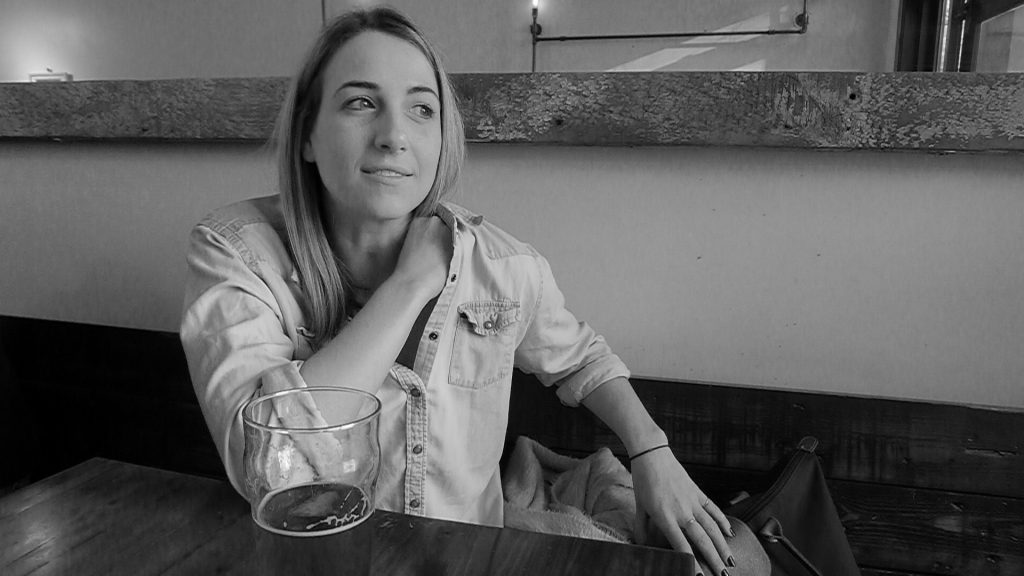
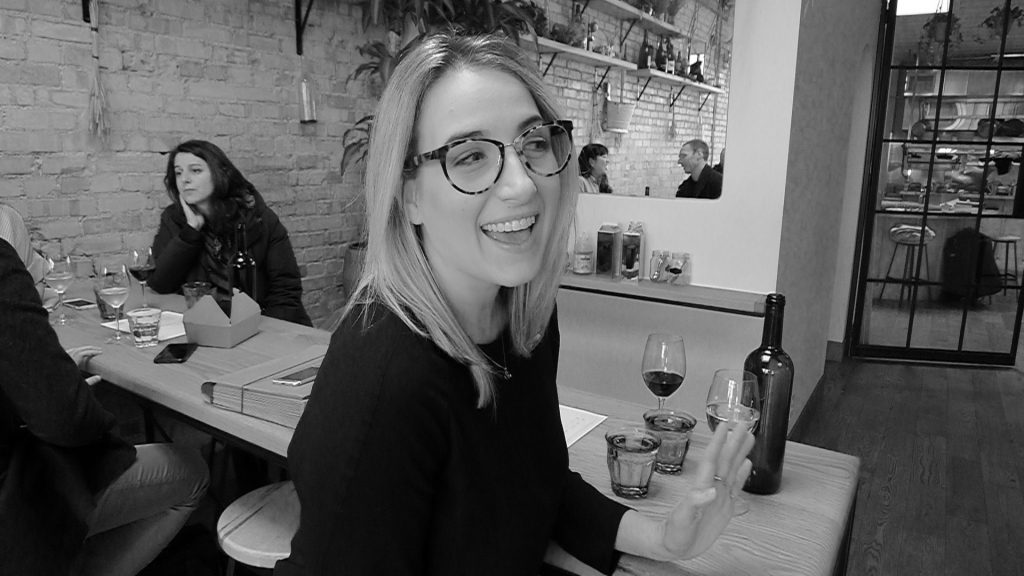
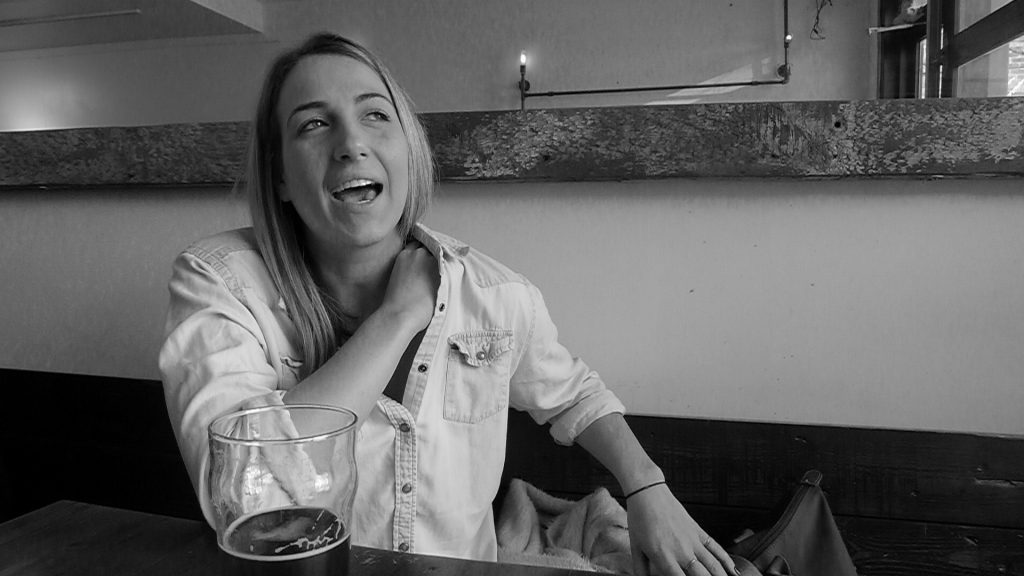
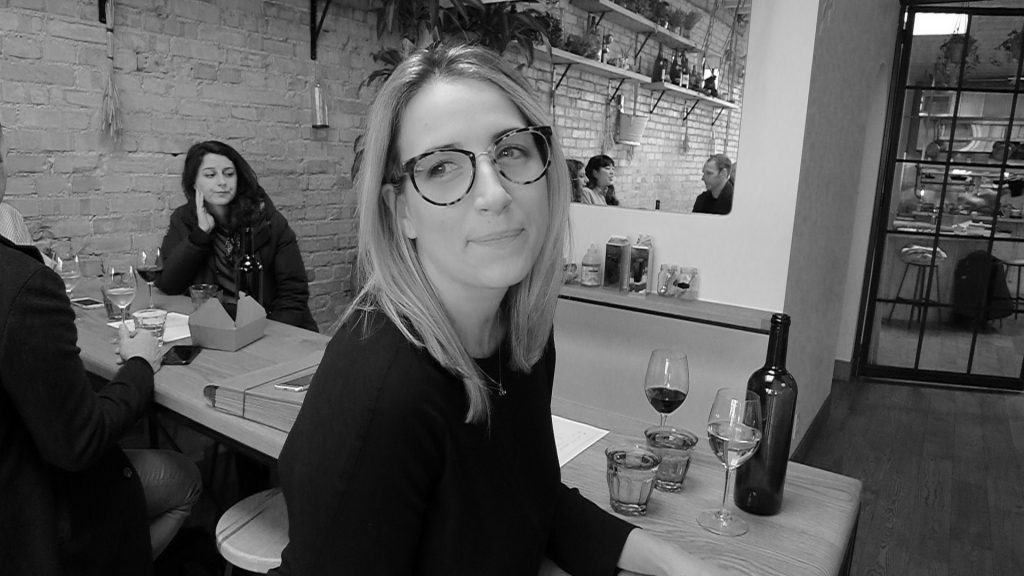
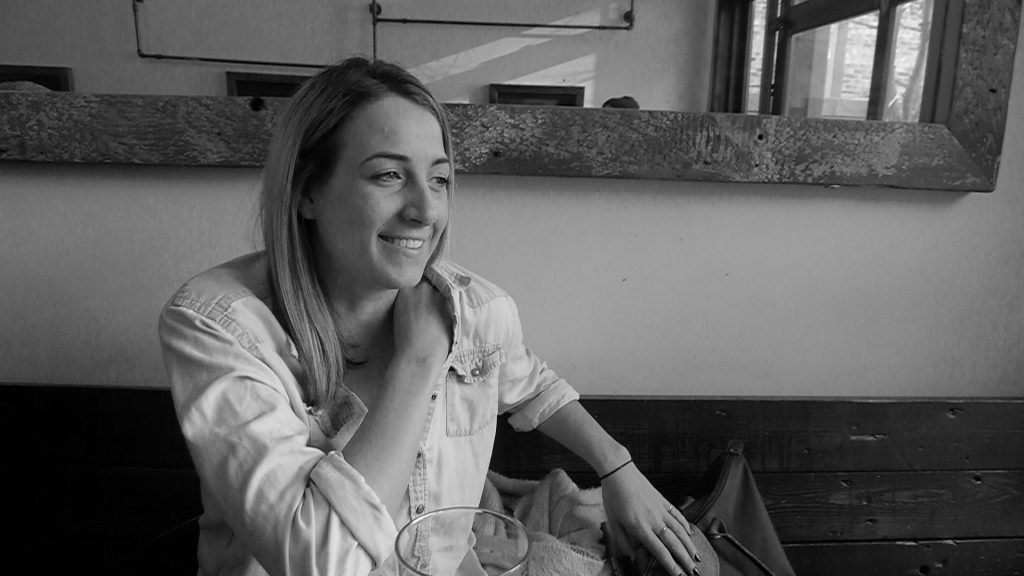


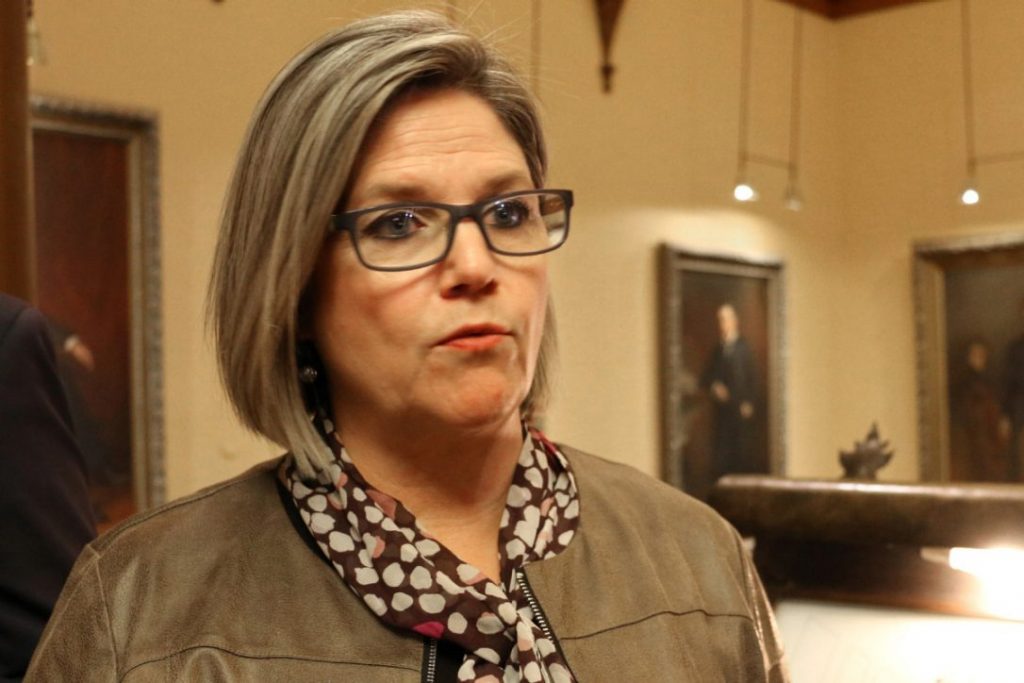
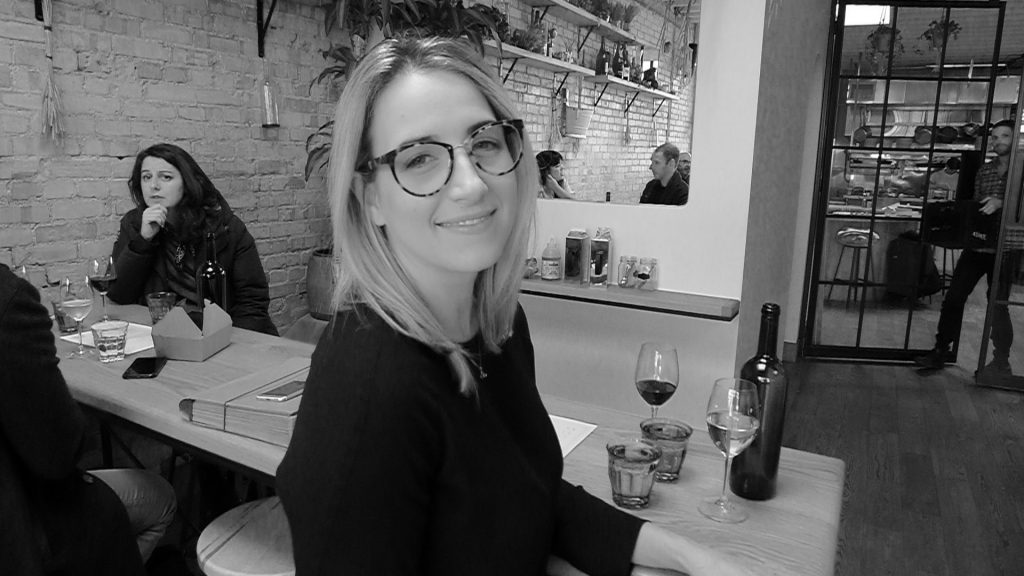
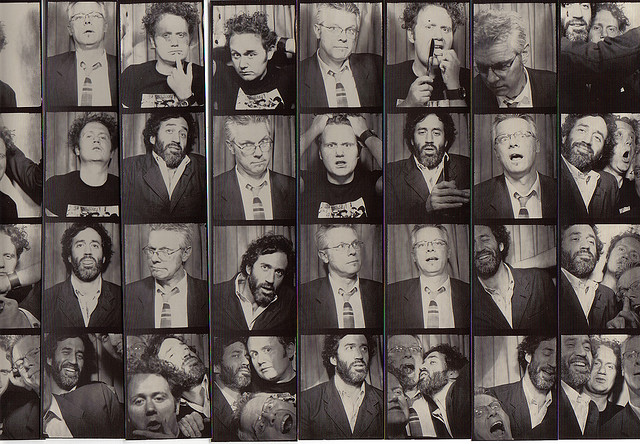

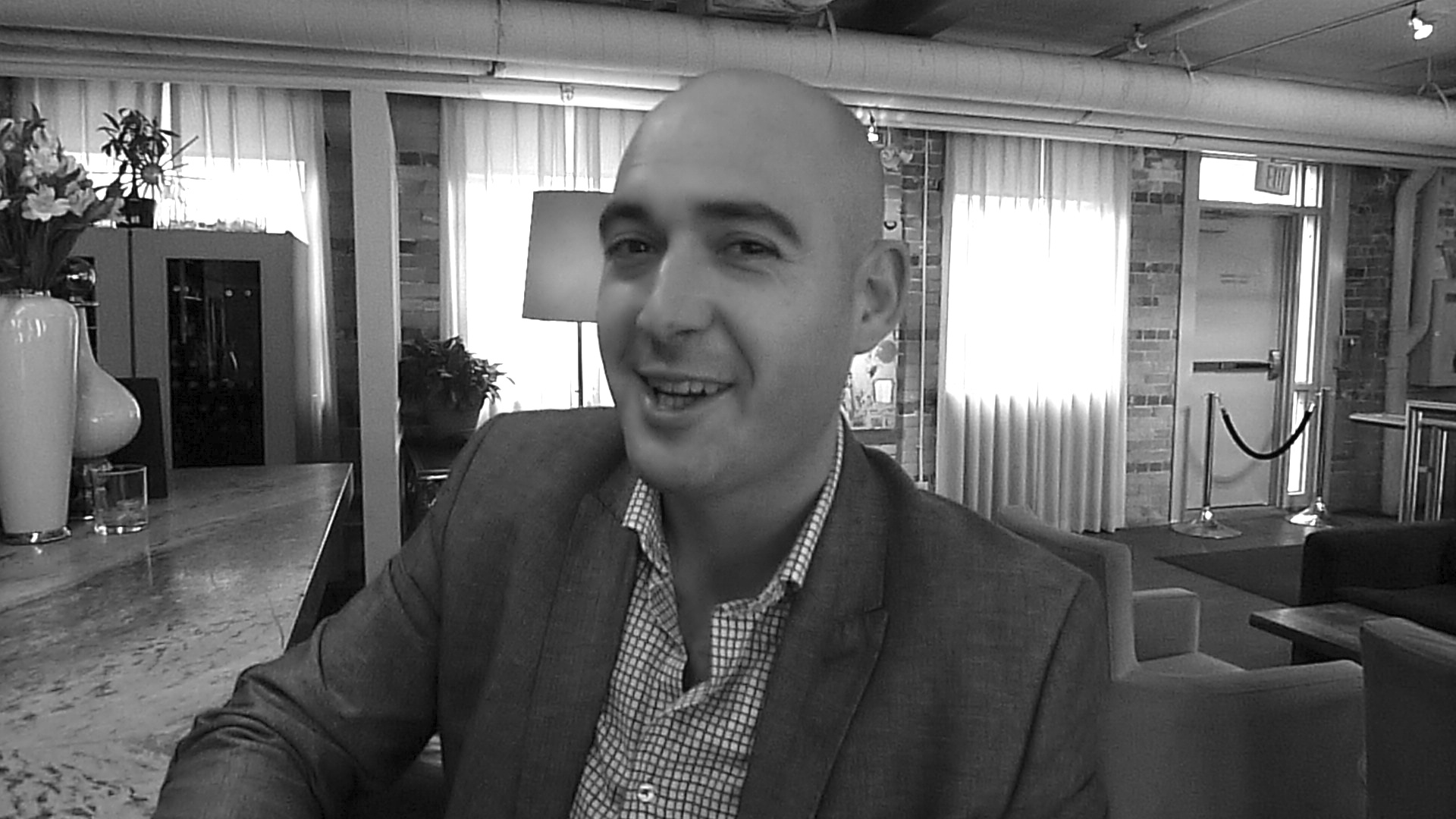
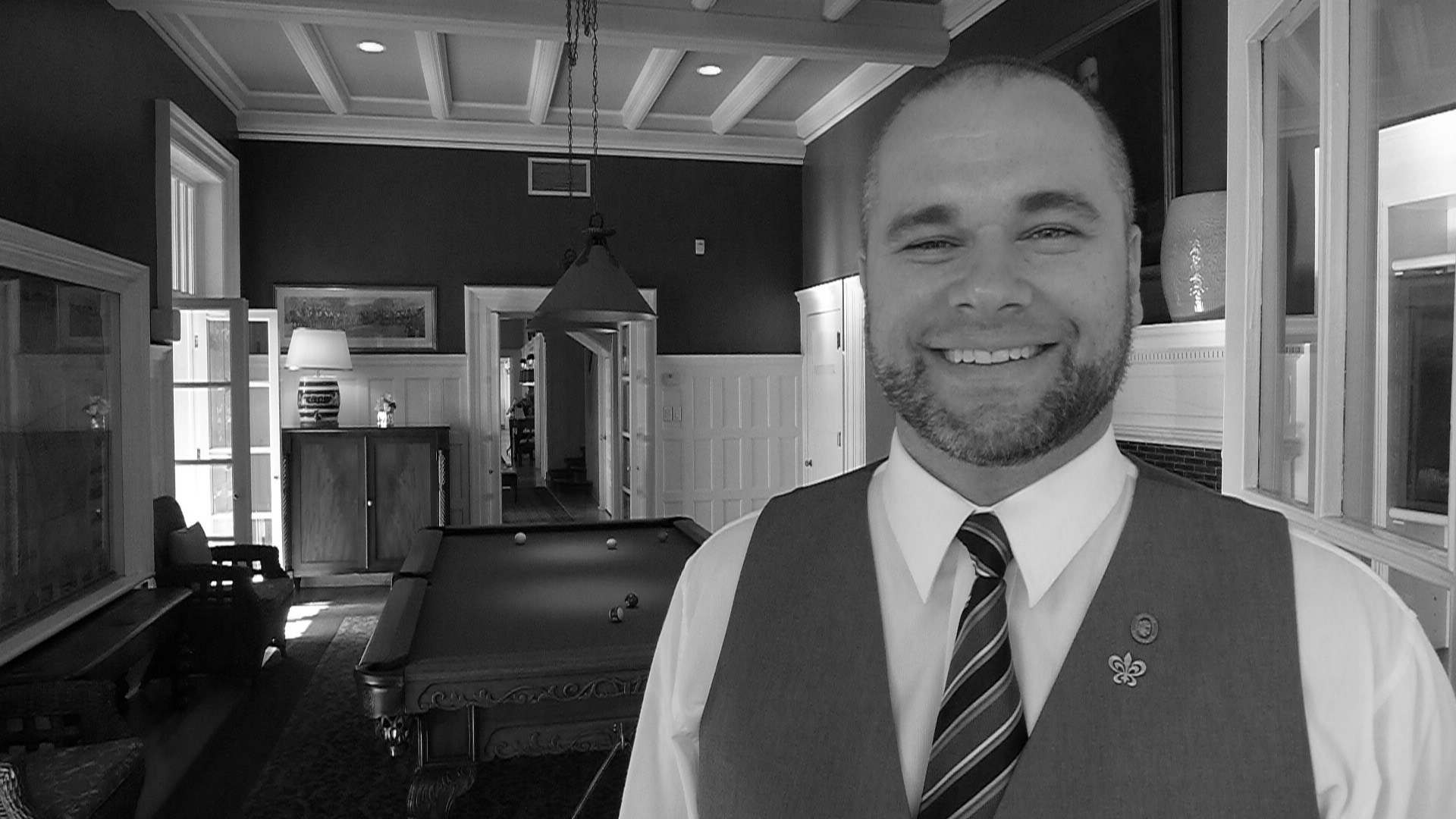

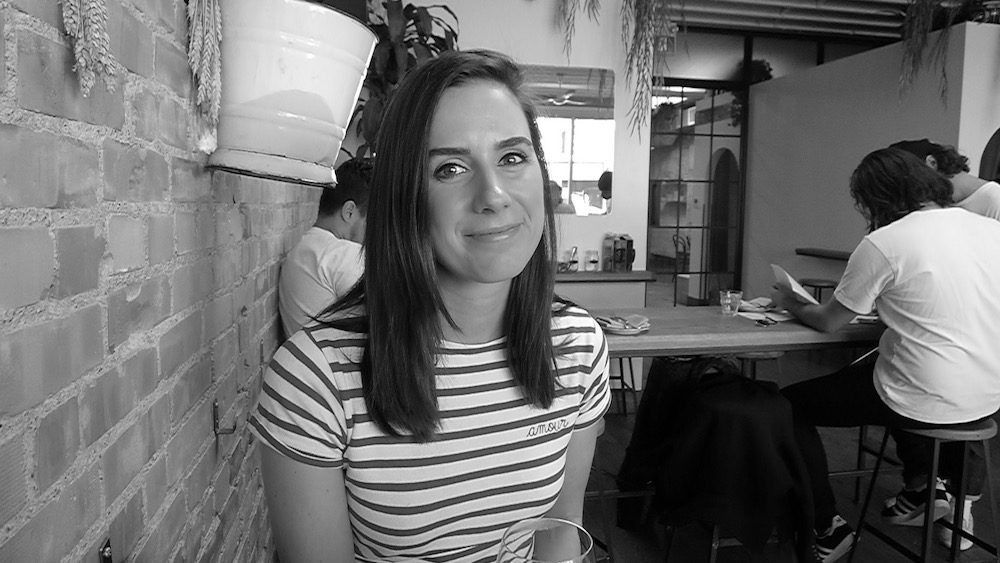

Best sommelier interview ever …top of the list…
great questions ….brilliant answers!